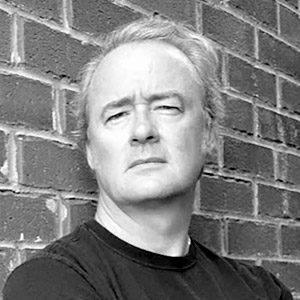At the recent NDP convention the other weekend, party delegates showed remarkable unity by coming together to support an important resolution regarding the ongoing Israeli-Palestinian conflict.
With 80 percent of delegates voting in favor, and only 16 percent opposed, the NDP officially changed party policy to end "all trade and economic cooperation with illegal settlements in Israel-Palestine" and suspend "the bilateral trade of arms and related materials with the State of Israel until Palestinian rights are upheld."
Overdue though it may be, the adoption of this policy, even by just a third party such as the NDP, is a positive step in the right direction, both for New Democrats, and for Canada as a whole.
For far too long, the bulk of Canada's political leaders have placed themselves on the wrong side of the Israel-Palestinian affair.
Whether through cowardly silence and inaction, or worse, willful collusion and obstruction, Canada's political elites have shirked their responsibilities to the millions of displaced and poverty-stricken Palestinians, desperate for international support.
And they have been doing so for much of the past decade and a half.
Beginning under the prime ministerial tenure of Paul Martin, the Liberals were the first to turn Canada away from the international consensus developing in favour of the Palestinians, and instead, join the U.S. as a far more unwavering backer of the Israelis at the UN.
Then along came Steven Harper, who only increased Canada's support of Israel, all while slashing finding to the UN relief fund for Palestine refugees. While no longer in office, Harper nonetheless leaves behind a plethora of Conservative disciples who now openly campaign to relocate Canada's embassy from Tel Aviv to Jerusalem; a move which flies in the face of all the principles of international justice.
After more than five years in office, Justin Trudeau has maintained this completely one-sided and harmful legacy in the middle east.
While he has reinstated funding for Palestinian refugees, his record on Israeli-Palestinian issues is nearly just as abysmal as the Harper Conservatives before him. Just check out his voting record at the UN.
Unfortunately, the NDP, long referred to as the 'conscience of parliament', has often been founding wanting in their efforts to keep either of these parties accountable.
Under Jack Layton, and later, Tom Mulcair, NDP leadership has either tried to ignore the tragic loss of life and Palestinian suffering, or have made heavy-handed attempts to restrict its debate.
With such an abysmal history of engagement on the issue, Canada desperately needs a rethink of its Middle Eastern policies; ideally, one which will result in shift of values amongst Canada's political representatives to never again feign ignorance over Israel's grave crimes.
And grave crimes they are.
With its devastating blockade of the Gaza strip and its decades-long occupation of the West Bank and annexation of East Jerusalem, Israel is, and has been for some time now, an apartheid state.
Of course, there will always be some misguided pundits, off in the newsrooms of the National Post, who will vehemently deny these charges, claiming that any such criticism of Israel is rooted not in objective fact, but in noxious anti-Semitism.
Evidently, though, these imprudent observers have not taken into consideration the research compiled by human rights groups like the Israeli-based B'Tselem, who have also condemned Israel with similar damning findings.
Nor have they taken into consideration the arguments advanced by famed linguist and foreign policy critic Noam Chomsky, who believes that even the apartheid characterization is not sufficient to cover all manner of Israeli crimes committed.
As Chomsky as written, "To call it apartheid is a gift to Israel, at least if by 'apartheid' you mean South African-style apartheid. What's happening in the Occupied Territories is much worse."
By and large, Canadians understand this as well.
It's why, when surveyed, they express their opposition to the Israeli annexing of Palestinian territory, and back the use of sanctions.
That was made clear in the results of last year's EKOS poll, which showed that 74 percent of Canadians would like to see their government express opposition to Israel's annexation of Palestinian land, with 42 percent supporting sanctions against the Israelis, should they continue their illegal and immoral expansion.
So well done, New Democrats.
On the issue of Palestinian rights, all of Canada's political parties could borrow a page from your revised policy book.
Photo Credit: Medium








